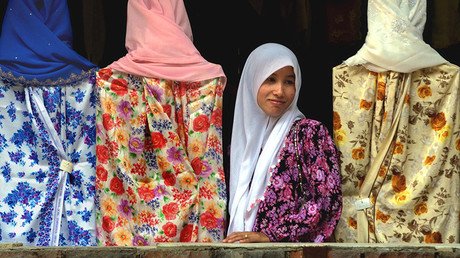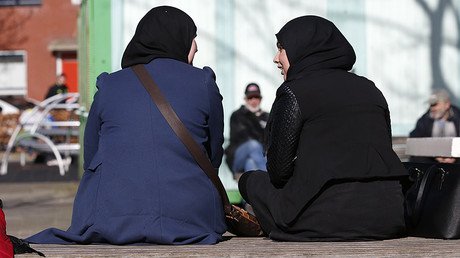Can hijabs for all women help fight Islamophobia?
Is it fair to ask every woman to wear a headscarf in solidarity with Muslims, or would it add fuel to the fire? Is the hijab only a piece of clothing, or is it a religious right? Where does the balance between freedom and security lie?
Austrian President Alexander Van der Bellen recently suggested that every woman might have to wear a headscarf in the future in a show of support for Muslim women.
He said that now a woman has the right to wear whatever she wants. However, he added that with growing Islamophobia there might be a day when one will have to ask every woman to wear a headscarf “because of solidarity to all those who do it due to religious reasons.”
According to Catherine Shakdam, of the Shafaqna Institute of Middle Eastern Studies, it’s wrong to go to extremes.
“I don’t think that anyone should impose the headscarf either way – whether it’s on or it’s off. It remains a woman’s choice to decide whether she wants to express her religion or her belief about wearing a headscarf or taking it off. It kind of bothers me that we go either the liberal way saying that everything has to come off, or to go to the other extreme and ask people who do not share the Islamic faith to wear it in solidarity. In solidarity with what? I do believe in religious freedom and think that we should respect each other and each other differences and each other’s right to choose for ourselves, what it is what we find suitable in terms of expressing ourselves,” she told RT.
It’s a different story, though, when women are forced to wear something when it’s linked to Wahhabism and the idea that women are not human beings, she said, adding, “It has nothing to do with Islam.” That is the issue that has to be addressed, Shakdam said.
“But we shouldn’t compound this with the hijab, and we shouldn’t ask for Muslim women, who do want to wear the hijab, to take it off. It would go against their religious values. The hijab is not just a piece of clothing for women who do choose to wear it, it is a choice to exercise their religious right and the way that they want to be perceived and portrayed in society,” she said.
Toni Bugle, of Mothers Against Radical Islam and Sharia, insists that there’s nothing wrong with a ban on wearing such items of clothing as burqas. She cites security reasons.
“The [UK is] a very tolerant country indeed. However, I think that banning the burqa… why is it turning into such a debacle when really it is no different to not wanting people to wear, say for example, a balaclava, or a baseball cap…? The fact to is to me – when I see somebody in a burqa, and I do see lots of people in the burqa in the area where I live, I feel like it is a war between me and that person. I can’t see the face – that is how people interact with each other,” she told RT.
Bugle said she felt that we are living “in [a] time when people are afraid.”
“If a person was attacked by somebody wearing it, how would we describe that person? It is impossible to describe them,” she said, adding that not just a woman could be wearing it.
In Bugle’s view, burqas don’t have anything to do with religion. Referring to what she learned from an imam, she said that the Koran “doesn’t mention the covering of the hair, or the burqa.”
The statements, views and opinions expressed in this column are solely those of the author and do not necessarily represent those of RT.














